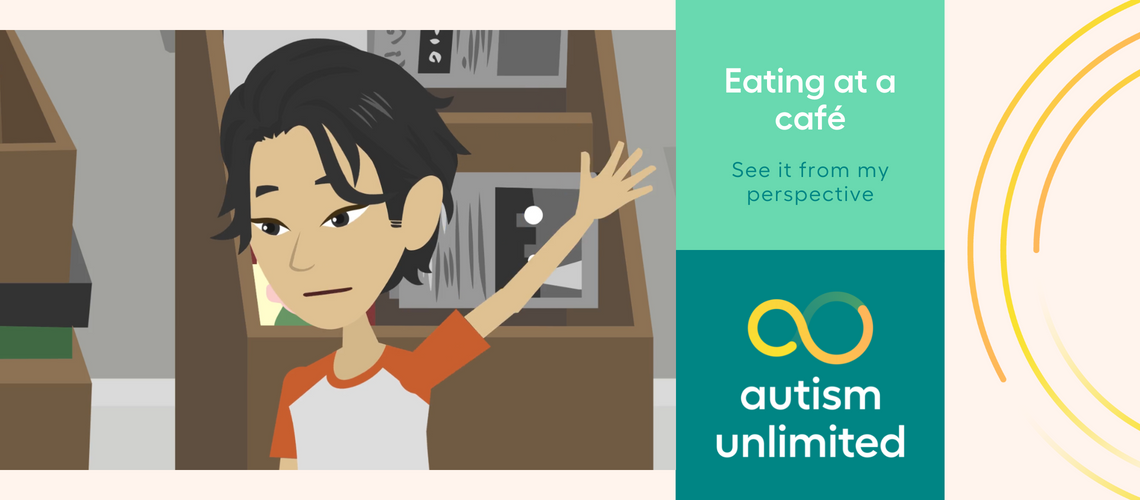James' Perspective - Eating Out

James is an autistic adult who was also diagnosed with epilepsy at the age of fifteen. He has limited verbal communication, and can say a couple of verbal phrases. This doesn’t mean he can’t share his thoughts, feeling, and needs – it just means that he communicates them in a different way.
Non-verbal doesn’t mean non-thinking – and non-verbal communication can be as expressive as verbal communication. There are so many wonderful ways to communicate, be it through gestures, body language, signing, or an AAC device, and it’s just as meaningful as spoken language.
James loves nothing more than visiting his favourite café, greeting the staff and enjoying a slice of millionaire shortbread. However, this joyful occasion can quickly become eclipsed by the reception from other customers when they see him behaving in a way that they perceive to be different.
During their café visit, James becomes excitable and starts stimming. Stimming, or self-stimulatory behaviour, is repetitive behaviours, such as hand-flapping, rocking, or making verbal sounds. They can vary from person to person, in both appearance and frequency. Some people may stim for enjoyment, while others find it to be a self-soothing behaviour.
The stimuli in a busy café setting can be overwhelming – with loud noises, large swathes of people, and strong smells. In that moment, stimming can be a useful tool to regulate emotions and process the sensory environment.
When James started stimming in the queue at the cafe, he was met with stares, tuts, and comments from other customers. What many people don’t realise is that stimming is often a helpful way to manage a situation and reduce anxiety and stress for some autistic individuals.
Judgement from onlookers only adds to the stress and makes the situation uncomfortable and upsetting for James and his family. It doesn’t take much to be kind, like the thoughtful customer who offered up her seat after noticing their distress. She didn’t treat them any differently, and thanks to her considerate gesture, James was able to settle in and enjoy his time.
The staff at the café are another great example of autism allies. They love seeing James and the feeling is equally reciprocated. When asked how he feels about going to the café, James uses one of his few verbal phrases, ‘happy’.
They have nurtured a safe and welcoming space, where he can feel a sense of belonging. Having people who are so accommodating makes all the difference to his experience. They accept him for who he is and make him feel valued and supported.
By seeing it from another perspective, we can learn why some people may behave and communicate differently. Instead of making our own assumptions, we can empathise and increase our understanding, becoming allies who are inclusive of autistic people.
His Top Tip: Make an attempt to learn and understand why some people may behave differently – instead of being judgemental, try to empathise and be respectful.






